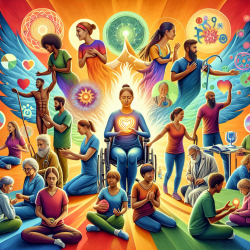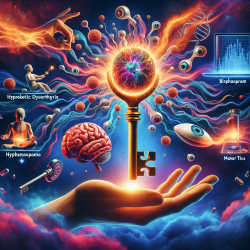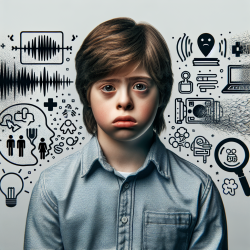The intersection of physical disabilities and mental health challenges in youth presents a complex landscape for rehabilitation services. Recent research, such as the scoping review titled "Organization of Rehabilitation Services for Youth with Physical Disabilities and Mental Health Problems," provides valuable insights into effective service delivery models. This blog aims to guide practitioners in enhancing their skills by implementing these insights or encouraging further research.
Understanding the Co-occurrence
Youth with childhood-onset physical disabilities often face additional mental health challenges, such as depression and anxiety. These issues are frequently overlooked in traditional rehabilitation settings. The transition to adulthood further complicates these challenges, making it crucial for practitioners to adopt comprehensive approaches that address both physical and mental health needs.
Key Findings from the Scoping Review
The scoping review identified two primary models for organizing rehabilitation services:
- Biopsychosocial, Collaborative, Agency-Based Service Integration Approach: This model integrates psychiatry within pediatric rehabilitation hospitals, emphasizing a multidisciplinary team approach.
- Client Network Consultation Model: This model focuses on interagency collaboration and family involvement to create individualized care plans.
The review also highlighted 12 key principles categorized into three themes: Collaboration and Coordination, Training and Support, and Delivery of Care. These principles can guide practitioners in enhancing service delivery for youth with co-occurring conditions.
Collaboration and Coordination
- Family Involvement: Engaging families in shared decision-making processes is crucial for effective care.
- Interprofessional Work: Collaboration among healthcare professionals from various disciplines ensures comprehensive care.
- Care Coordination: Designating a care coordinator helps streamline communication between families and healthcare providers.
Training and Support
- Staff Training: Providing workshops for clinicians enhances their ability to address mental health issues alongside physical rehabilitation.
- Peer Support: Encouraging peer support groups can offer emotional support to both youth and their families.
Delivery of Care
- Accessible Care: Flexible service delivery that adapts to the needs of clients is essential for effective rehabilitation.
- Individualized Plans: Developing formal care plans that consider cultural and personal values ensures tailored support.
The Importance of Further Research
The scoping review underscores the need for developing formal models of service delivery that are both comprehensive and adaptable. Practitioners are encouraged to engage in further research to evaluate the effectiveness of these models across different contexts. Understanding the dynamic interactions within interagency collaborations can provide deeper insights into optimizing service delivery.
Conclusion
The integration of mental health services into rehabilitation programs for youth with physical disabilities is not only beneficial but necessary. By adopting the key principles identified in recent research, practitioners can enhance their skills and improve outcomes for this population. Continuous exploration and adaptation of service delivery models will ensure that the complex needs of these youth are met comprehensively.










